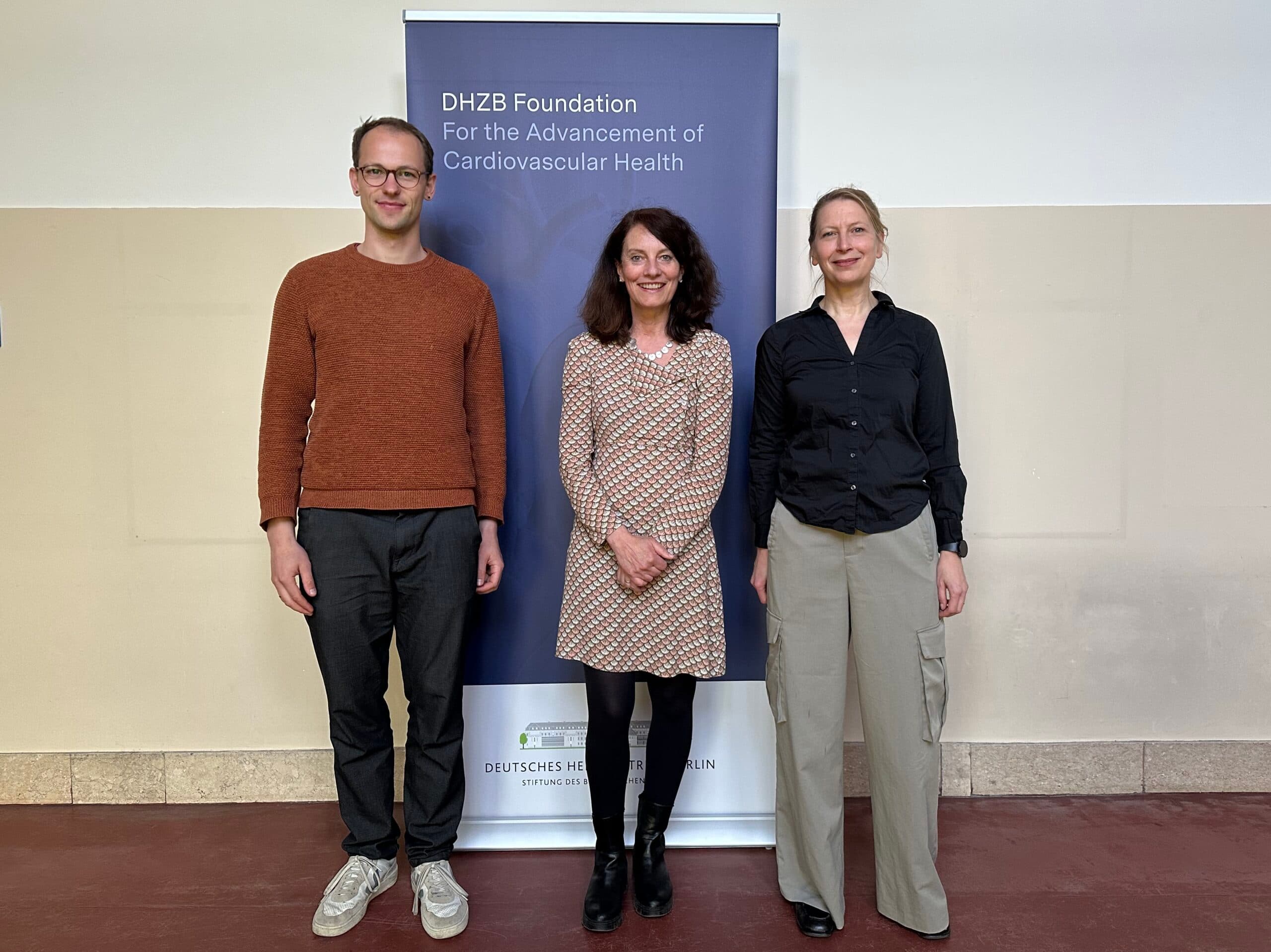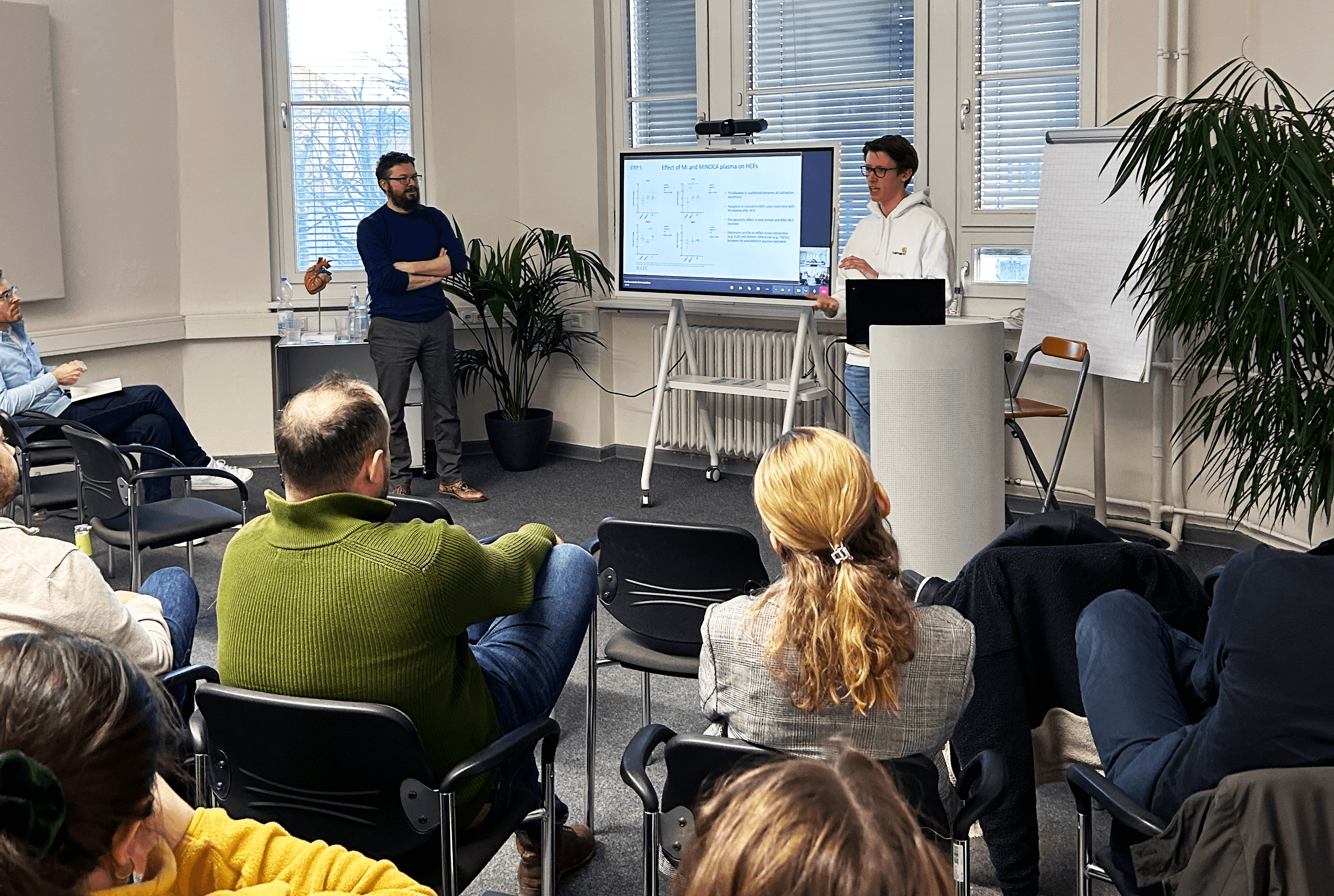The presentation of Dr. Tharusan Thevathasan focused on developing an AI-based model to enhance discharge decisions in the cardiac ICU. Due to high ICU bed demand, accurate discharge readiness assessment is critical to prevent unplanned readmissions and associated risks. A retrospective international multicenter cohort study was conducted using the Delphi method and electronic health records to train and validate a deep neural network. In the next step, the resulting “ICU Traffic Light” model is compared to clinical judgment in a randomized controlled trial.
Dr. Elaaha Anwari und Dr. Denitsa Meteva presented new insights into plaque erosion in acute coronary syndrome (ACS) and the diagnosis using high-resolution OCT imaging. Studies indicate that plaque erosion involves distinct but milder inflammatory processes compared to plaque rupture. The goal is to develop personalized, inflammation-targeted therapies based on specific pathophysiological mechanisms. The OPTICO-ACS 1 study supports this approach through advanced immunophenotyping and molecular analyses.
Dr. Markus Anker spoke about a new form of cardiomyopathy in patients with tumors, which is associated with loss of heart muscle mass. This often occurs alongside full-body cachexia. A new method for the early, non-invasive detection of pulmonary congestion could involve lung water measurement (e.g., using ReDS™ technology). The randomized, double-blind, placebo-controlled EMPATICC trial is currently investigating whether the administration of heart failure medications in the palliative care of specific patients with cancer can help improve quality of life.
The evening offered a successful mix of exciting specialist presentations and stimulating discussions. Participants were able to exchange ideas and make new contacts over snacks and drinks in a relaxed atmosphere. The event once again demonstrated that medical progress benefits greatly from interdisciplinary exchange.
The next event will take place on June 26.


